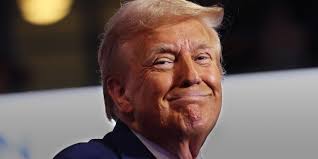House Speaker Mike Johnson and former President Donald Trump have aligned their views on the necessity of linking government funding to election security measures. This stance has been highlighted by Trump’s recent posts and Johnson’s comments on CNN, emphasizing the importance of securing assurances on election integrity before supporting any government funding resolution.
- Government Funding and Election Security: Trump’s directive to congressional Republicans was clear: without guarantees on election security, they should oppose the continuing resolution for government funding. This aligns with Johnson’s strategy, who has been pushing for the SAVE Act, which requires proof of citizenship for voter registration, to be tied to government funding. Despite the House passing this bill, its future remains uncertain due to opposition from Democrats and potential veto threats from the White House.
- Political Strategy and Debate: Johnson’s advice to Trump during the presidential debates reflects an attempt to steer the political discourse towards policy rather than personality, suggesting a focus on substantive issues like election security over personal attacks. This approach is seen as a way to maintain party unity and appeal to voters on policy merits.
- Criticism of Vice President Harris: Johnson’s critique of Vice President Kamala Harris’s performance and her involvement in the Afghanistan withdrawal decisions illustrates the GOP’s strategy to hold the administration accountable for foreign policy failures, linking her directly to controversial decisions under the Biden administration.
- Public Sentiment and Legislative Actions: Johnson’s engagement with the public across various states underscores a widespread concern over election integrity, which he aims to address through legislative means like the SAVE Act. This act, despite existing laws against noncitizen voting, is seen as an additional safeguard, reflecting a broader Republican push for voter verification.
- Current Status: Despite the House GOP’s efforts, including passing a funding plan with the SAVE Act, the path forward is fraught with challenges. The Senate’s reluctance, led by Majority Leader Chuck Schumer, and a potential veto from President Biden, indicate significant hurdles. Johnson’s recent decision to pull the spending bill suggests a recognition of these obstacles, possibly leading to negotiations or a different legislative strategy to avoid a government shutdown.
This situation encapsulates the current political tug-of-war over government funding, where election security has become a pivotal issue, reflecting deep divisions not just on policy but on how governance and electoral processes should be managed in the U.S.





